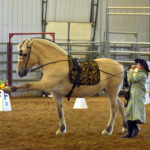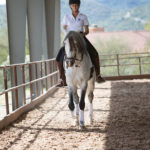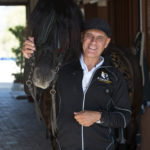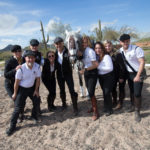Riding in Style at El Caballo REY
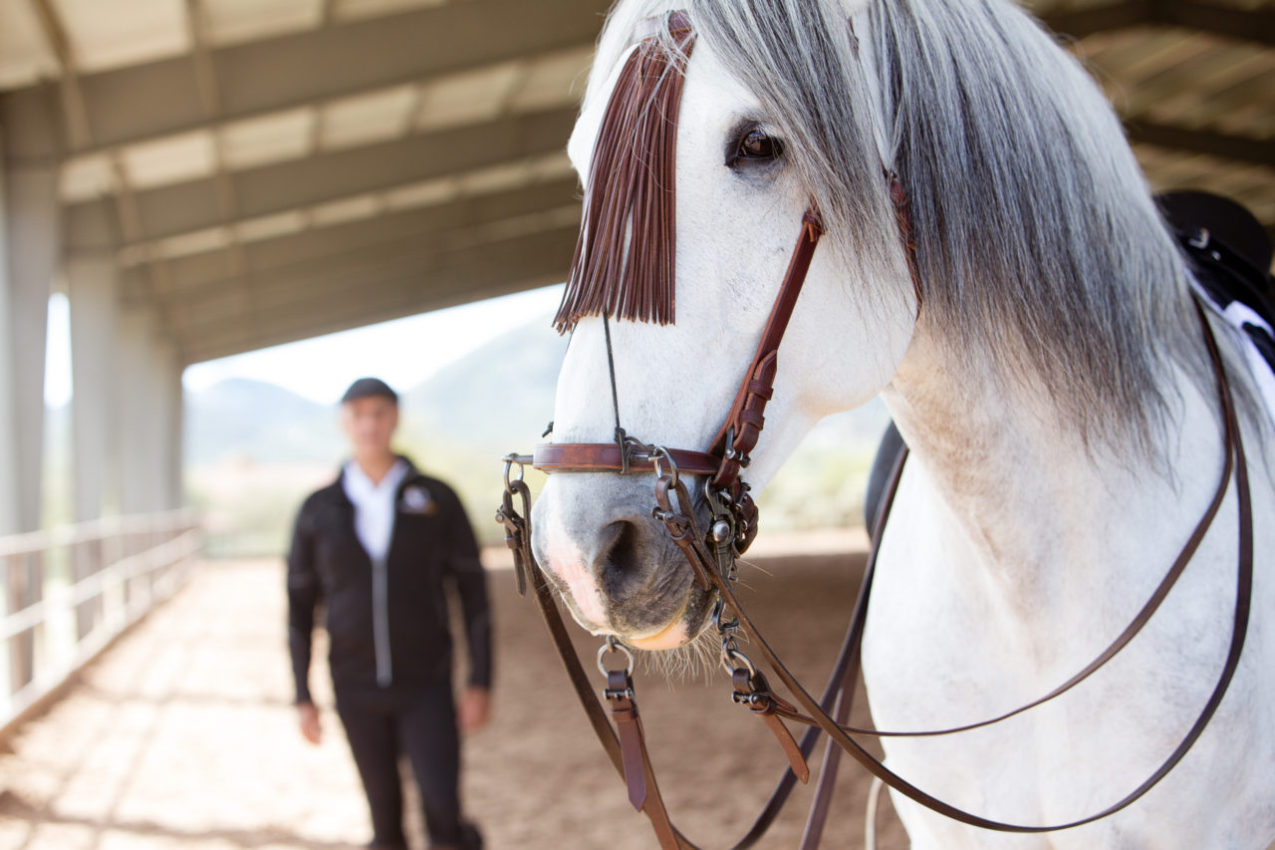
Writer Beth Duckett
Photographer Loralei Lazurek
[dropcap]T[/dropcap]hirty years ago, Cave Creek horse trainer Manuel Trigo was a software engineer living in Switzerland and working 16 hour days, with little time left for much else. Young and motivated, Trigo decided to move 6,000 miles away to sunny Costa Rica and teach scuba diving, one of his life’s passions. But like many ambitious people trying to escape a hectic life, his free time was short-lived.
A skilled virtuoso with many interests, Trigo soon found himself immersed in a new recreational activity: horses. By riding and studying them religiously (at one point reading the same equestrian book a dozen times), Trigo trained and later taught himself the basics of classical riding or “dressage,” a French term meaning training.
The sophisticated equestrian art form dates back hundreds of years to kings and aristocrats, celebrating the horse’s natural athleticism and movements. Based on riding in harmony with the horse, the classical school trains horses to perform specific actions, such as school jumps, with grace, balance and dignity. Riders and horses work together and perform in unison, much like an intricate dance.
Trigo began training horses for friends and hosted seminars, attracting horse enthusiasts from across the country. Applying educational techniques drawn from his years as a scuba diving instructor, Trigo trained more than 600 equine students in a span of only three years.
“I was working like crazy,” he says. “In a few years, I was working as much as I did in Switzerland. I was going from place to place, riding horses, giving lessons. At one point, I decided I wanted to do something cool.”
Soon after, Trigo and his wife launched a restaurant offering a gourmet dining experience overlooking an equestrian arena, where Trigo would ride horses as a form of entertainment.
“Very quickly, I caught myself trying to show off,” he says with a laugh. The business later morphed into a dinner show named El Caballo REY, or “the king horse,” an homage to the Pura Raza Española. This breed of horse is described as the “Horse of Kings,” as they were, quite literally, bred for kings.
Known for their nobility, intelligence and beauty, the Pure Spanish horse breed is a natural fit for the regal world of classical dressage, Trigo’s mastery.
His dinner shows attracted Costa Rica’s heavy tourist population, including visitors from Colorado, who invited Trigo to host horse-training clinics in the Rocky Mountain state. He moved to Colorado and based on a suggestion from a friend, visited Arizona, preferring the state’s sunny skies to Denver’s harsher winters.
In 2016, Trigo opened El Caballo REY Equestrian Art Academy in Cave Creek. He has revived the relatively rare and age-old art form of classical dressage at a secluded site surrounded by open desert south of the Spur Cross Ranch Conservation Area, in a town known for its equestrian-friendly lifestyle.
“It’s a passion, it’s a lost art, so you want to share that with people,” he says of classical dressage. “It’s something that is so very hard, but you get some payback and satisfaction at all kinds of levels.”
Trigo, 52, practices the French idea of lightness, an equestrian philosophy rooted in natural movements and harmony.
“Tempo and rhythm, as well as balance, play crucial roles, as only a horse whose legs are fully balanced on the ground can achieve lightness,” he says.
At the academy, Trigo trains alongside a group of instructors individually specialized in Pilates, music and historical fencing. Together, they offer private and group lessons to equine enthusiasts who want to improve their techniques, bond with horses, prepare for exhibitions or just have fun.
The combination of disciplines pushes El Caballo REY’s training to new levels. Students practice Pilates on and off the horse to improve balance and body communication skills.
Fencing, Trigo says, “teaches you to move the gravity center on your legs,” similar to riding a surfboard, while music from a drum instructor encourages rhythm and flow for horse and rider.
This type of training “is just not easy to find anywhere in the world,” says Marsha Ferrick, a student who sold her belongings last year to relocate to Cave Creek and train more heavily under Trigo. “It’s about the art of mastery. Whether it’s the art of mastering riding or the art of mastering other areas within your life, whether it’s your profession or your relationships, it’s about being dedicated to something you’re passionate about and continuing to work on that and improve on a regular basis.”
The academy’s internships cater to many people, from teenagers wanting to learn more about breeds and barn duties to college students who dedicate several days a week to groom, train with and ride horses for free. Students can also undergo eight-hour intensive training sessions over five days.
Wendy Dinnerstein, a senior student at El Caballo REY, has trained under Trigo for more than five years, spending her winters here in Arizona.
“I love the equestrian life; studying with Manuel and learning about lightness and self-care, which is taking my horsemanship to another level,” Dinnerstein says. “I feel grateful for the opportunity to do that. I bring all my life experience in natural horsemanship. It just seems to make the flow complete.”
On a broader level, Trigo’s students benefit in ways beyond learning the techniques of classical riding, which include airs above the ground, when a horse’s hooves leave the ground in highly trained movements.
“If you are good with horses, you will probably be very good with people,” Dinnerstein notes. “It teaches you how to relate in a caring, loving and understanding way. When you have a relationship, and you can put that balance and lightness on top of that, it does become a dancing art form.”
For Trigo, a multilingual prodigy who has the potential to excel at many disciplines, horses present a never-ending challenge. He continues to train and teach across the United States, as well as internationally.
“Nothing can challenge you better than horses,” Trigo says. “When you train a horse to a higher level, you think you’re going to do the next one the same way. It’s not like that. They have their own personality. Every horse is a challenge.”
To learn more about future open training days at El Caballo REY, contact Wendy Dinnerstein at one4horses@gmail.com. For information or to visit El Caballo REY – Equestrian Art Academy, contact the school.
720-320-7252
elcaballorey.com


